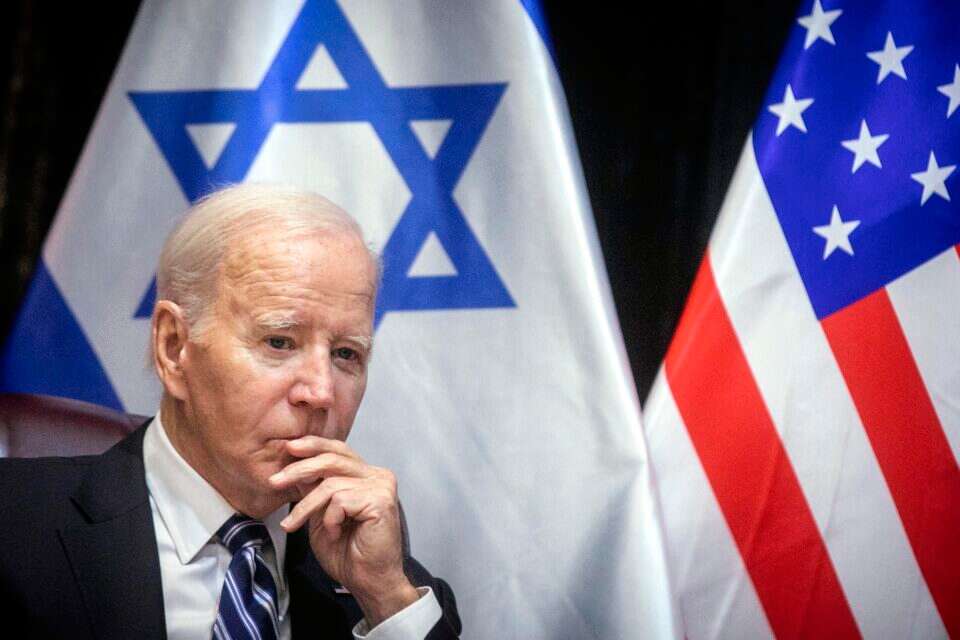Early in the morning on 6 October, an emergency meeting was held in the Prime Minister's Office. It was attended by the prime minister, defense minister, chief of staff, head of military intelligence and other senior defense officials. The news was clear: a combined surprise attack was imminent. How to respond? This was considered by the Prime Minister. The decision was made: a blow to the front. The prime minister added that it was necessary to wait for developments throughout the day, because the air force would be able to strike Syria in advance even if only Egypt attacked.
50 years have passed since this morning, which led to the Yom Kippur War, and history repeats itself. It seems that the world is behind Israel, but the hourglass of international legitimacy is running out as soon as war breaks out. Three weeks later, Israel is fighting under international community restrictions.
It is permissible to respond and attack Hamas targets in Gaza, but humanitarian supplies must be transferred; It is permissible to assassinate senior Hamas figures, but one must be careful not to harm civilians who serve as human shields; It is permissible to fight murderous terrorism, but we must be careful not to deteriorate the situation into a humanitarian crisis, or to spill over into other arenas. "The world is revealing itself in all its nastiness," Prime Minister Golda Meir said on 6 October 10, and her words apply to today's situation as well.
True, the leaders of the Western world, including the presidents of the United States and France, the prime minister of England and the chancellor of Germany, came to Israel to express condolences and solidarity. But alongside the outstretched hand and the supporting shoulder, we received demands for checks and balances: a humanitarian corridor, electricity supply, a water pipeline and adherence to international law. Israel can continue to fight as long as it pays the required tax. Thus, the world went from shock and revulsion at the very fact that Hamas carried out massacres to expressions of empathy, and even support for the Palestinian position.
A week ago, Barack Hussein Obama, former US president, issued a statement condemning the Hamas attack, but added that Israel must adhere to laws that protect civilian populations in time of war, and emphasized Palestinian suffering: thousands killed in the bombing of Gaza, including many children; Hundreds of thousands were forced to leave their homes; The Israeli government's decision to cut off food, water and electricity supplies to a captive civilian population threatens not only to exacerbate a growing humanitarian crisis, but to further harden Palestinian attitudes throughout the ages, erode global support for Israel, play into the hands of Israel's enemies, and undermine long-term efforts to achieve peace and stability in the region.
Obama is not alone in his position. Stormy demonstrations take place every week around the world, pro-Palestinian support is skyrocketing, as is anti-Semitism. This is clearly reflected on the campuses of the best universities and colleges, both by students and by lecturers and academics. Media coverage is also gradually changing.
Leaders of the Western world, including the presidents of the United States and France, the prime minister of England and the chancellor of Germany, came to Israel to express condolences and solidarity. But alongside the outstretched hand and the supporting shoulder, we received demands for checks and balances: a humanitarian corridor, electricity supply, a water pipeline and adherence to international law
Therefore, no Western leader would want to face rampant protests, violent ethnic and religious confrontations, or hostile media coverage – especially not a leader facing an election year, like Joe Biden, who will run for a second term in the White House in November 2024.
True, the US sent two aircraft carriers to the Mediterranean and showed leadership and true friendship towards Israel, but it comes at a price: the delay in the ground incursion, the change in military plans (according to foreign reports), the need to show restraint vis-à-vis Hezbollah, and the need to transfer supplies to Gaza, even though Hamas continues to hold hostages whose fate is unknown. Biden wants calm, Washington wants containment and is even thinking about the day after the war – two states for two peoples. We? Are we asked what we want? "The world is revealed in all its wickedness... They won't believe us..." Golda Meir said, apparently describing her present and predicting our future.
Wrong? We'll fix it! If you find a mistake in the article, please share with us

